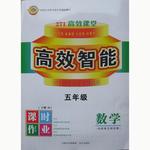One young academically excellent person went to apply for a managerial position in a big company. He
36 the first interview; the director did the last interview.
The director asked, “Did you obtain any scholarships in school?” The young man answered, “
37 .”
“Who paid the school fees for you?”
“My father passed away
38 I was born, so my mother paid them all.”
“What did your mother do?”
“A laundry woman.”
The director
39 the youth to show his hands. They were smooth and perfect. The director asked, “Have you ever
40 your mother wash the clothes?” The youth answered, “
41 . My mother always wanted me to study and read more books.
42 , she can wash clothes faster than me.”
The director said, “Please go and clean your mother’s hands, and then see me tomorrow.”
The youth felt his
43 of getting the job high. When he went back, he happily asked his mother to let him clean her hands. His mother felt
44 but happy with mixed feelings.
The youth cleaned his mother’s hands
45 . He cried as he did that. It was the first time he had
46 his mother’s wrinkled hands with so many bruises (伤痕) on them. Some bruises were so painful that his mother
47 when they were cleaned. Only by then did he realize it was this pair of hands that assisted him
48 his academic years.
After finishing cleaning his mother’s
49 hands, the youth quietly washed all the
50 clothes for his mother. That night, they talked for a very long time.
The next morning, the director noticed the youth’s swollen
51 and asked, “Can you tell me what you have done and
52 in your house?”
The youth answered, “I cleaned my mother’s hands and also finished washing all the remaining clothes. I know now what
53 is. Without mother, there would not have been my success today.”
The director said, “This is what I am looking for
54 a manager. I want to hire a person who can value the help of others and who knows the
55 of others. You are hired.”
1.
| A.
| qualified
| B.
| failed
| C.
| passed
| D.
| won
|
2.
| A
| Nothing
| B.
| Few
| C.
| Some
| D.
| None
|
3.
| A
| since
| B.
| when
| C.
| although
| D.
| once
|
4.
| A
| requested
| B.
| persuaded
| C.
| demanded
| D.
| begged
|
5.
| A
| assisted
| B.
| had
| C.
| watched
| D.
| helped
|
6.
| A
| Seldom
| B.
| Sometimes
| C.
| Never
| D.
| Rarely
|
7.
| A
| Meanwhile
| B.
| Besides
| C.
| However
| D.
| Somehow
|
8.
| A
| chance
| B.
| luck
| C.
| desire
| D.
| idea
|
9.
| A
| strange
| B.
| different
| C.
| excited
| D.
| unfamiliar
|
10.
| A
| skillfully
| B.
| shyly
| C.
| politely
| D.
| slowly
|
11.
| A
| glanced
| B.
| noticed
| C.
| accepted
| D.
| considered
|
12.
| A
| shook
| B.
| shouted
| C.
| moved
| D.
| fell
|
13.
| A
| during
| B.
| along
| C.
| through
| D.
| with
|
14.
| A
| damaged
| B.
| ruined
| C.
| broken
| D.
| wounded
|
15.
| A
| worn
| B.
| used
| C.
| dirty
| D.
| dusty
|
16.
| A
| hands
| B.
| eyes
| C.
| ears
| D.
| cheeks
|
17.
| A
| found
| B.
| enjoyed
| C.
| expected
| D.
| learned
|
18.
| A
| appreciation
| B.
| understanding
| C.
| regret
| D.
| sympathy
|
19.
| A
| about
| B.
| of
| C.
| in
| D.
| on
|
20.
| A
| sufferings
| B.
| happenings
| C.
| doings
| D.
| surroundings
|



 高效智能课时作业系列答案
高效智能课时作业系列答案 er got back neither the suitcase nor Rupert.
er got back neither the suitcase nor Rupert. t of sweets.
t of sweets.  ends sent the old lady many lovely presents by post
ends sent the old lady many lovely presents by post